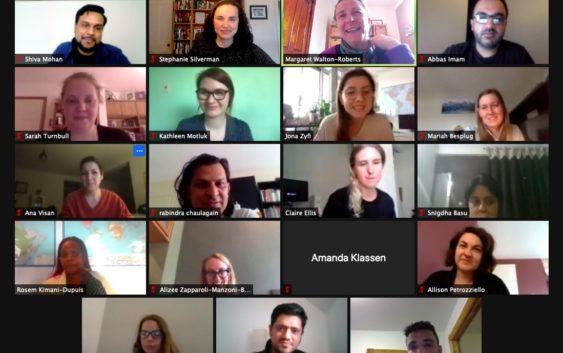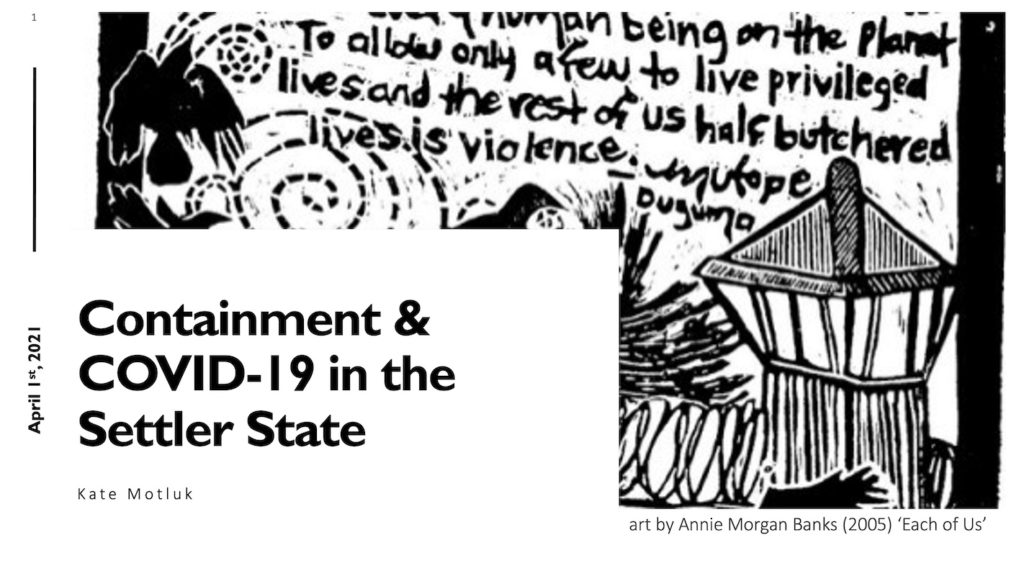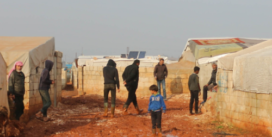- Fall Newsletter, 2025, Issue 15
- Using International Online Learning Modules to Engage Students in the Study of Critical Global Issues
- Upcoming Book Launch: Hearts of Freedom
- Announcing winners of the 2025 CARFMS Essay Contest
- The New York Declaration for Refugees and Migrants and its two Global Compacts: Addressing the Symptoms or the “Root Causes” of Forced Displacement?*
CARFMS Meets: IMRC!

By Stephanie J. Silverman
 Dr. Stephanie J. Silverman is a sociolegal scholar who focuses on the tripwires of migration control. Her recent publications include articles on detainee risk assessments, administrative decision-making, Canadian quarantine powers, and a special journal issue on abolishing detention and other forms of incarceration. Her forthcoming monograph presents a new explanatory and analytic theory of the meteoric rise and normalization of immigration detention, drawing on Canada as a key case study. Contact Dr. Silverman at https://www.sjsilverman.com/
Dr. Stephanie J. Silverman is a sociolegal scholar who focuses on the tripwires of migration control. Her recent publications include articles on detainee risk assessments, administrative decision-making, Canadian quarantine powers, and a special journal issue on abolishing detention and other forms of incarceration. Her forthcoming monograph presents a new explanatory and analytic theory of the meteoric rise and normalization of immigration detention, drawing on Canada as a key case study. Contact Dr. Silverman at https://www.sjsilverman.com/
On 01 April 2021, CARFMS held a joint workshop with postgraduate students at the International Migration Research Centre (IMRC). With our Annual Conference postponed to October 2021 due to the COVID-19 pandemic, CARFMS wanted to ensure that we reach out to, connect with, and support the research of emerging scholars. In these workshops, we are prioritizing a form that gives formative and substantive feedback to student research and creates opportunities for discussion despite distances.
CARFMS was very pleased to work with the faculty, staff, and students at the IMRC on our first workshop! Based at Wilfrid Laurier University in southern Ontario, the IMRC serves as a node of excellence in scholarship and research, social and cultural debate and policy formulation pertaining to international migration. The IMRC’s mission is to create platforms for debate, research, policy analysis, community engagement, and proposal development related to international migration and mobility at global, national, regional and local scales.
The innovative format was designed to support and offer feedback to graduate students working on issues related to migration and mobilities. We assigned one CARFMS affiliate to serve as discussant for each of the four presenters. Themes included the inheritance of colonial knowledges in refugee law, theory, and settlement practices; the overlapping and interrelated intersections of gender, health, and trauma; how to tease out American from Canada policies towards asylum seekers along the shared border; and, importantly for all researchers, how to strategically plan and carry out ethical methodologies during an era of COVID-19, austerity, and unequal relations of power and access.
Highlights included:
Rosemary Kimani-Dupuis presenting her PhD research on the mental health of refugee women resettled from Africa in Canada. Rosemary’s intervening in global health, refugee studies and women’s studies by focusing on 3 areas of research gaps: health intersectionalities; gender violence and race; and the last impacts of trauma. Rosemary is drawing on her research to make new bridges across studying and alleviating refugee trauma, geographies of violence & vulnerability, and respect for human rights.
Kate Motluk presented a novel historical and analytic comparison of detention regimes across settler-colonial contexts. She is interested in comparing Australia and Canada’s responses to incarceration of Indigenous peoples and non-citizens. Policymakers limited but did not abolish imprisonment during the COVID-19 pandemic, despite clear arguments for public health in favour of doing so. Kate urges that we understand these practices are “punitive in the name of ‘protection’”.
Monica Romero presenting some findings from her PhD research on the experiences of asylum seekers crossing the US-Canada border, particularly in relation to restrictions imposed by the Safe Third Country Agreement. Monica here argued that colonial categories of membership and refugeeness continue to animate law and policy. She also analysed safety determination practices as strategies to control access. Drawing on Nancy Hiemstra’s conceptualization of reverberations, Monica paid particular attention to recent changes to the structure of refugee and crime adjudication, including the creation of the Ministry of Border Security and organized crime.
Ana Visan presented a preliminary exploration of her PhD project on how immigration and enforcement civil servants understand their roles and how technology influences this relationship, the management of people, and the ongoing “spaces of exception” in refugee deterrence and detection practices. Anna noted how the European Union is strengthening its governance of technology policies while, at the same time, deploying a range of unaccountable technology at the border to repel asylum seekers. Drawing on “Roborder” as a potential case study, Ana’s work will push for better regulations of States’ uses of technology in “managing” migration.
CARFMS would like to thank Prof. Alison Mountz for her leadership and stewardship of this event. We also acknowledge the excellent work of Shiva Mohan and Abbas Iman, the time and energy of the student presenters and CARFMS affiliates who served as discussants, and Margaret Walton Roberts who chaired the discussion brilliantly.
If your student group is interested in hosting a “CARFMS Meets…” session, please reach out to CARFMS Outgoing VP, Stephanie J. Silverman via https://www.sjsilverman.com/

